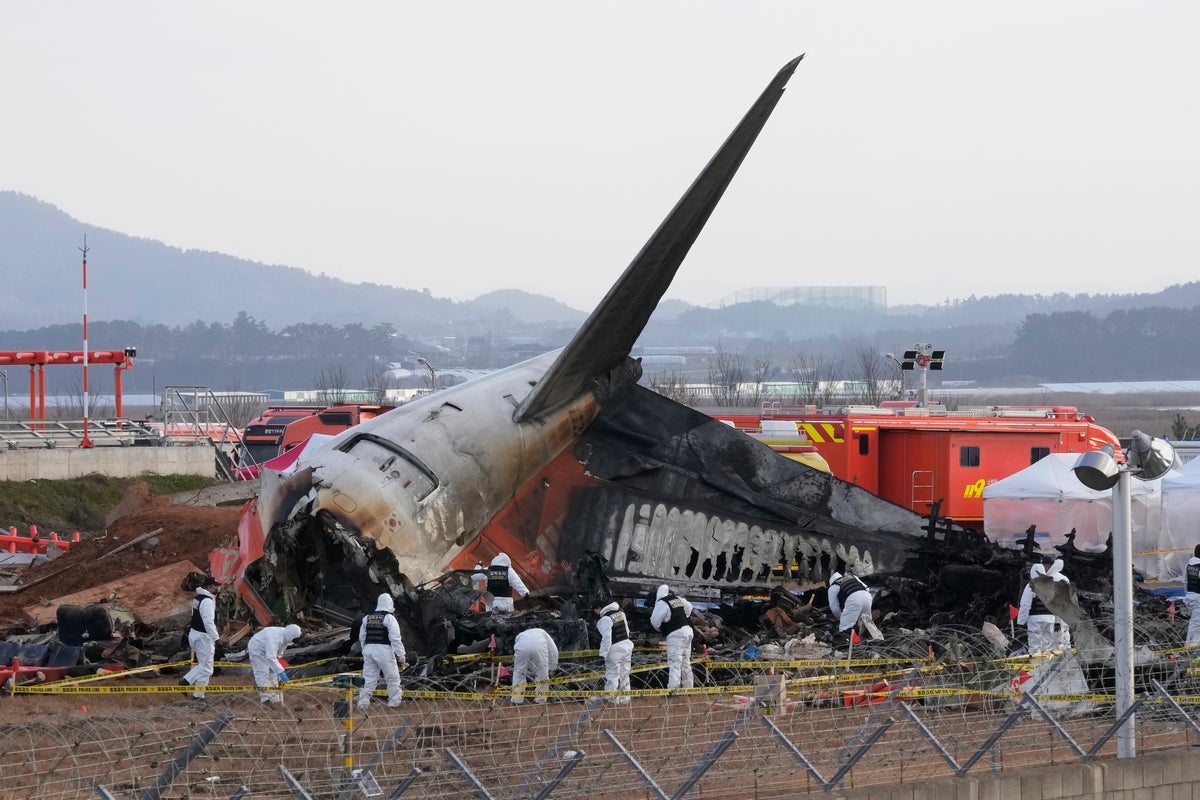Families of the victims of the Jeju Air crash in South Korea have filed a complaint against 15 people they believe to be responsible for last December’s disaster that killed all but two of the 181 people on board.
The country’s transport minister and the airline chief are reportedly among the people named in the complaint.
Police and government officials have already been investigating the Jeju Air crash, so the complaint is largely seen as a symbolic step calling for a swifter and more thorough probe. The bereaved families complained a lack of meaningful progress in efforts to determine what caused the disaster and who is responsible.
About 72 bereaved relatives submitted the complaint to the Jeonnam Provincial Police agency in southern South Korea on Tuesday, according to their lawyers and police.
The 15 people cited in the complaint include the transport minister, Jeju Air’s president and airline officials handling maintenance and safety issues, along with officials at Muan International Airport who are responsible for preventing bird strikes, air traffic control and facility management, according to a statement from a lawyers’ group supporting the relatives.
“Four months after the disaster, we can’t help feeling deep anger and despair over the fact that there has been little progress” in the investigation, Kim Dae Hye, a bereaved family member, said in the statement.
Lawyer Lee So Ah said Wednesday the complaint would formally require police to brief bereaved families of their investigation, though police have so far only voluntarily done so.
The Boeing 737-800 operated by Jeju Air skidded off the runway at the Muan airport on 29 December after its landing gear failed to deploy, slamming into a concrete structure and bursting into flames.
Authorities have since said they found traces of a bird strike in the plane’s engines and that the plane’s two black boxes stopped recording about 4 minutes before the crash. Many analysts said the concrete structure, which housed a set of antennas called a localizer that guides aircraft during landings, should have been built with lighter materials that could break more easily upon impact.
South Korean aviation authorities were reportedly warned about a high risk of bird strikes near the Muan international airport, which prompted a dozen officials to hold a review meeting about 10 days before the fatal incident. At that meeting of the bird strike prevention committee late last year, an official from a national aviation training institute flagged that incoming planes regularly encountered large flocks of birds along the coast.
So far, no exact cause of the crash has been announced and no one has been prosecuted. The crash was the country’s deadliest aviation disaster since 1997.
Jeonnam Provincial Police agency officials said they’ve been investigating the accident. They suggested a complex incident like the Jeju Air crash would require a lengthy investigation but declined to say when they expect to wrap up their probe.

